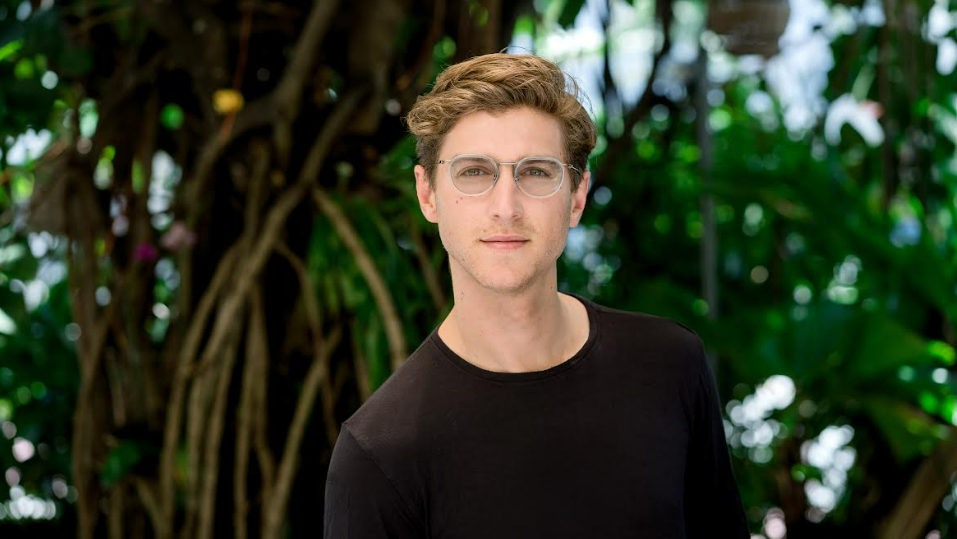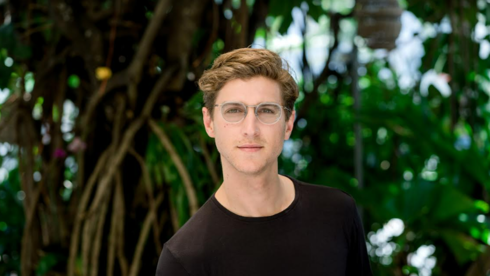
What's Next?
“The growth market is shut across every single geography in the world. It is shut.”
Eric Reiner, Founder and Managing Partner at Vine Ventures, spoke with CTech as part of its most recent project “Where do we go from here?”, aiming to examine how the Israeli VC industry is dealing with the crisis in the sector
“I think Generative AI is the poster child for the AI revolution that we are currently undergoing and will continue to undergo,” said Vine Ventures Managing Partner Eric Reiner. “Frankly, I believe it has existential consequences for the software industry as a whole. This is why you have seen that we have made one new investment this year. We have been very specific about the types of companies we are investing in because we are entering a new period of the economy.”
Check out the entire What's Next? series
Vine Ventures is an early-stage technology-focused VC firm that invests in companies across the U.S., Israel, and Latin America. Despite announcing a new $140 million fund in 2022, the firm is not immune to the economic challenges faced by the rest of the world. The fact the firm invests across so many regions gives it a good view of how Israeli companies compare to global companies all seeking financing.
“We’re seeing slightly fewer companies and I can tell you we are seeing significantly more net new interesting companies coming out of Israel than the U.S. at present - significantly more, at the Seed stage,” he added. “The growth market is shut across every single geography in the world. It is shut. It doesn't exist.”
Reiner joined CTech for its “Where do we go from here?” series to explore how early-stage companies can thrive during the economic crisis and how firms like Vine are navigating a turbulent time. Answers have been lightly edited for clarity.
Name of fund/funds: Fund I ($53 million) and Fund II ($140 million)
Total assets under management: $240 million
Partners: Eric Reiner and Dan Povitsky
Notable/select portfolio companies: Hippo, Carta, Komodor, Compete.
“The conversation is not focused on the judicial reform…It is not something that is, in my opinion, affecting growth stage investment in the country”
How long do you think the global economic slowdown will last?
“My perspective is that this downturn was long overdue. It is a healthy thing for the environment and I would be very dishonest to suggest it hasn't benefited us in one way or another. I think for us, we don't really see a path in the next 2-5 years of multiples getting to the medians they were at in October 2021. And I think from our perspective, our business and identity as a firm is really trying to back companies that will be platform businesses that can have very sticky stable customer bases that will ultimately be able to produce a significant amount of net profit. And it is just going to require a larger amount of net profit, which means more time, in order to generate the returns that were generated in the previous iteration of this economy.”
How does the crisis differ in Israel compared to the rest of the world?
“I think it is completely the same, for Israel and the rest of the world. I believe it is 100% associated with the economic situation. I can tell you anecdotally in the last two weeks we've had five of the top venture capital firms in the world in our office in Tel Aviv and while they are very much affected by the global economy and interest rates and the lack of ability to raise these $20 billion funds anymore, the conversation is not focused on the judicial reform, it is not focused on the Haredi community growing more rapidly than the secular population. I’m not saying it should or shouldn't be, but I can tell you it is not the main topic of conversation and it is not something that is, in my opinion, affecting growth stage investment in the country.
Related articles:
“It's a contrarian view and I want to be clear: My position on the reform is irrelevant. I believe there are issues with our system and I believe there are issues with the way the reform suggests it should end up being, but my perspective is that the outside growth investors of the world are not considering that to be a core criterion of whether they would or not focus on investing in Israel.”
How can you take advantage of this interim period to prepare better for the reawakening when it arrives?
“I think one of the tough parts of the last iteration of the economy was that any time you would have an interesting business, call it anti-fraud for e-commerce, payments operations for software companies, or the previous iteration cybersecurity, in the past it was so easy to get funding for companies. The companies that would have earned the right to become category-defining companies will have a lot of little bug-nipping at them causing the crisis to go down, causing noise in the market, and causing things to be more expensive.
“You're still going to have that and we have seen it, but I think the bottom line is that you can expect from large companies, the category-defining companies with the best management teams, that on the competition front, they would have an easier job of becoming the companies they're destined to be.
“Other than that, I think there is a benefit to building a business with capital constraints. I think there are huge issues with building a business across an industry and environment where you believe that cash is a never-ending fountain of youth - it just isn't the case.”
Do you support the general assumption that Generative AI can rescue the industry from the current crisis?
“I think Generative AI is the poster child for the AI revolution that we are currently undergoing and will continue to undergo. Frankly, I believe it has existential consequences for the software industry as a whole. This is why you have seen that we have made one new investment this year. We have been very specific about the types of companies we are investing in because we are entering a new period of the economy. That is my opinion and that is the opinion of our firm. We are going to be very specific and focused on the types of opportunities that can be true platforms versus point solutions, especially within the AI space.”
Are you seeing fewer companies or just choosing to invest in fewer companies?
“We’re seeing slightly fewer companies and I can tell you we are seeing significantly more net new interesting companies coming out of Israel than the U.S. at present - significantly more, at the Seed stage. The growth market is shut across every single geography in the world. It is shut. It doesn't exist.
“In Seed, the difference between Israel and the U.S. is that in Israel, founders are founders through and through. In the U.S., it is rare you see a founder that has started 5-6 companies. In Israel, frankly, you meet someone who had two failed startups, and now they're on their fifth or sixth. The only thing they could do with their life is start a company, so you better believe we want to see those opportunities when it is someone's life mission to build companies.”
As an organization that looks at different international territories, can you point to differences between the response of the Israeli VC sector and that of VCs in other countries?
“I don't think it’s that different. I think growth, Series A, and beyond is virtually shut down. I think Seed and reasonable A rounds are happening at a rapid and normal pace.”
How should the venture capital industry conduct itself in the immediate and medium term?
“At Vine, one of the key components of how we want to be the best partner for companies is with our U.S. network of operators. We have a list of almost 300 C-Level execs from top companies that are CTOs, VPs of Engineering or Data, and I have our team mainly focused on tapping into that network and giving our portfolio companies warm leads into potential customers in these large U.S companies.
“For us, we’re spending more time than we would have in a more active market. We are spending a lot of time, effort, and energy tapping into this operator network and allowing our portfolio companies to have access to the very best operators and buyers of technology in the U.S.”
